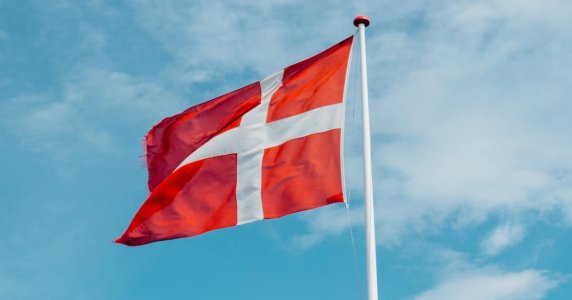Which country has retail titan ALDI retreating?
- Replies 0
When it comes to shopping, there are a number of international brands that seem to conquer every market they venture into.
The German supermarket giant ALDI, boasting a portfolio of countries all the way from Australia to the US, is one such powerhouse.
With competitive prices and an intriguing Special Buys section, many customers worldwide plead for ALDI to set foot on their shores.
However, there's one country right next to ALDI's home ground that looked at what ALDI had to offer and said, ‘No thanks.’ The country? Denmark.
In an eyebrow-raising move, Danish shoppers have shown immunity to ALDI's allure, standing as sturdy as the ancient castles that dot their beautiful landscape.
ALDI is in the process of closing or selling almost 200 stores in Denmark after losing a distressing amount of money—close to a billion Australian dollars!
‘It’s unbelievable that large German ALDI is withdrawing from Denmark,' mused Norwegian economist Odd Gisholt.
Denmark’s tough love for ALDI is more perplexing when we consider the supermarket's success elsewhere. Since ALDI entered Australia in 2001, it has firmly established itself as a disruptive force, chipping away at the market shares of industry titans Woolworths and Coles.
It’s also pushed IGA into the fourth-largest supermarket chain in Australia.
Similarly, ALDI has made a significant impact in the US, the UK, and other European markets. Denmark, however, remains unruffled.
Despite a presence dating back to 1977, ALDI's market share in Denmark is a mere 3 per cent, in stark contrast to its 30 per cent hold in Germany and 10 per cent in the UK.
In 2022, ALDI Denmark reported a loss of $128 million AUD, despite increased sales. It's estimated that ALDI has lost around 4 billion Danish Kroner (approximately $880m AUD) in total.
Bruised and baffled, ALDI conceded defeat, with ALDI Denmark Head, Finn Tang, confirming: ‘After carefully examining activities in all markets, ALDI Nord has reached the difficult, but necessary decision to leave the Danish market’.
The company said it would focus instead on ‘European markets, where ALDI experiences strong growth, creates better results and sees long-term potential.’
But why was ALDI met with such a cold welcome in one corner of Scandinavia? Of its 188 stores in Denmark, an agreement has been made to sell 114 to Norwegian discount grocer Rema 1000. The remaining stores will either be sold off or closed.
Sadly, this puts about 1,000 jobs at risk.
‘ALDI Denmark has burned cash on a large scale, while ALDI Germany is a very profitable company,’ wrote Reidar Molthe for NHH Norwegian School of Economics in 2021.
‘It is quite strange that as fast as you cross the narrow border to Denmark, everything goes from heaven to hell,’ the expert added.
One of the answers to ALDI's Danish dilemma lies in its lack of adaptation. Customers online shared their concern that ALDI was simply shipping German products across the border, just with a Danish label slapped on them.
ALDI Nord, the branch operating in Denmark, maintained a basic strategy that fell flat among Danish consumers. The stores, often perceived as shabby, were seen as out-of-place on the chic Scandinavian shopping scene.
The final nail in the coffin was a remark by Rema 1000's CEO, Henrik Burkal. He acknowledged that ALDI was a huge inspiration when his company first opened in 1979.
Yet today, in a twist of fate, they stand robust while ALDI retreats.
‘It is with equal parts humility and pride that we are now allowed to carry the banner on,’ he said in a statement.
ALDI's one-size-fits-all approach clearly failed to resonate with Denmark's discerning consumers. Competition in Denmark is fierce, with supermarkets per capita higher than the European average. ALDI is only the latest player to pack up its stores and admit defeat.
On top of all these, Denmark has an inherent nationalistic love for home-grown brands that aren't easily swayed. However, ALDI’s withdrawal doesn't mean the Danish market is impossible. Several overseas-based supermarkets managed to operate successfully.
By the end of this year, Denmark can proudly claim itself among the few nations that politely showed ALDI the door.
 We hope you’ve enjoyed looking into this fascinating chapter of ALDI’s story, members! Do you have a go-to supermarket you’re loyal to? Let us know in the comments!
We hope you’ve enjoyed looking into this fascinating chapter of ALDI’s story, members! Do you have a go-to supermarket you’re loyal to? Let us know in the comments!
The German supermarket giant ALDI, boasting a portfolio of countries all the way from Australia to the US, is one such powerhouse.
With competitive prices and an intriguing Special Buys section, many customers worldwide plead for ALDI to set foot on their shores.
However, there's one country right next to ALDI's home ground that looked at what ALDI had to offer and said, ‘No thanks.’ The country? Denmark.
In an eyebrow-raising move, Danish shoppers have shown immunity to ALDI's allure, standing as sturdy as the ancient castles that dot their beautiful landscape.
ALDI is in the process of closing or selling almost 200 stores in Denmark after losing a distressing amount of money—close to a billion Australian dollars!
‘It’s unbelievable that large German ALDI is withdrawing from Denmark,' mused Norwegian economist Odd Gisholt.
Denmark’s tough love for ALDI is more perplexing when we consider the supermarket's success elsewhere. Since ALDI entered Australia in 2001, it has firmly established itself as a disruptive force, chipping away at the market shares of industry titans Woolworths and Coles.
It’s also pushed IGA into the fourth-largest supermarket chain in Australia.
Similarly, ALDI has made a significant impact in the US, the UK, and other European markets. Denmark, however, remains unruffled.
Despite a presence dating back to 1977, ALDI's market share in Denmark is a mere 3 per cent, in stark contrast to its 30 per cent hold in Germany and 10 per cent in the UK.
In 2022, ALDI Denmark reported a loss of $128 million AUD, despite increased sales. It's estimated that ALDI has lost around 4 billion Danish Kroner (approximately $880m AUD) in total.
Bruised and baffled, ALDI conceded defeat, with ALDI Denmark Head, Finn Tang, confirming: ‘After carefully examining activities in all markets, ALDI Nord has reached the difficult, but necessary decision to leave the Danish market’.
The company said it would focus instead on ‘European markets, where ALDI experiences strong growth, creates better results and sees long-term potential.’
But why was ALDI met with such a cold welcome in one corner of Scandinavia? Of its 188 stores in Denmark, an agreement has been made to sell 114 to Norwegian discount grocer Rema 1000. The remaining stores will either be sold off or closed.
Sadly, this puts about 1,000 jobs at risk.
‘ALDI Denmark has burned cash on a large scale, while ALDI Germany is a very profitable company,’ wrote Reidar Molthe for NHH Norwegian School of Economics in 2021.
‘It is quite strange that as fast as you cross the narrow border to Denmark, everything goes from heaven to hell,’ the expert added.
One of the answers to ALDI's Danish dilemma lies in its lack of adaptation. Customers online shared their concern that ALDI was simply shipping German products across the border, just with a Danish label slapped on them.
ALDI Nord, the branch operating in Denmark, maintained a basic strategy that fell flat among Danish consumers. The stores, often perceived as shabby, were seen as out-of-place on the chic Scandinavian shopping scene.
The final nail in the coffin was a remark by Rema 1000's CEO, Henrik Burkal. He acknowledged that ALDI was a huge inspiration when his company first opened in 1979.
Yet today, in a twist of fate, they stand robust while ALDI retreats.
‘It is with equal parts humility and pride that we are now allowed to carry the banner on,’ he said in a statement.
ALDI's one-size-fits-all approach clearly failed to resonate with Denmark's discerning consumers. Competition in Denmark is fierce, with supermarkets per capita higher than the European average. ALDI is only the latest player to pack up its stores and admit defeat.
On top of all these, Denmark has an inherent nationalistic love for home-grown brands that aren't easily swayed. However, ALDI’s withdrawal doesn't mean the Danish market is impossible. Several overseas-based supermarkets managed to operate successfully.
By the end of this year, Denmark can proudly claim itself among the few nations that politely showed ALDI the door.
Key Takeaways
- ALDI is closing or selling off nearly 200 outlets in Denmark after significant financial losses, making the country the first to reject the popular German supermarket chain.
- ALDI's failure in Denmark is puzzling since it's in close proximity to its homeland Germany and has been well received in other countries, such as Australia, the US and the UK.
- ALDI has struggled to gain a significant market share in Denmark, only reaching a mere 3 per cent compared to 30 per cent in Germany and 10 per cent in Britain.
- No clear reason was given for ALDI’s failure in Denmark. Speculations suggest that it may be due to a vast number of German products in the supermarket not reflecting the local taste preference or the highly competitive local supermarket scene.










